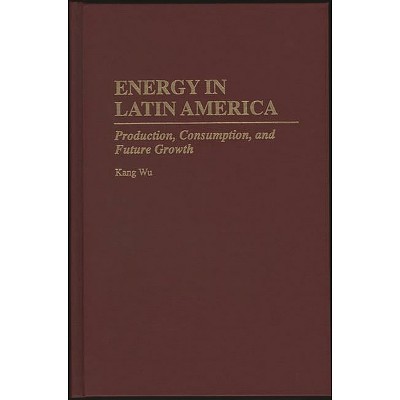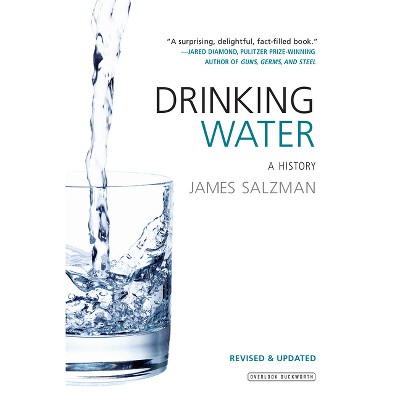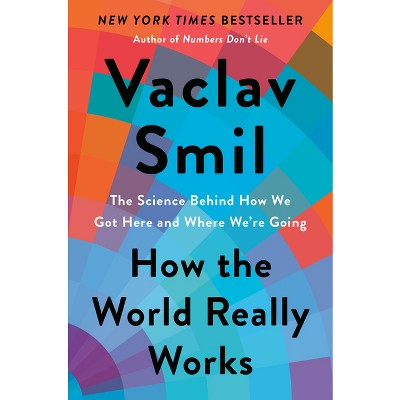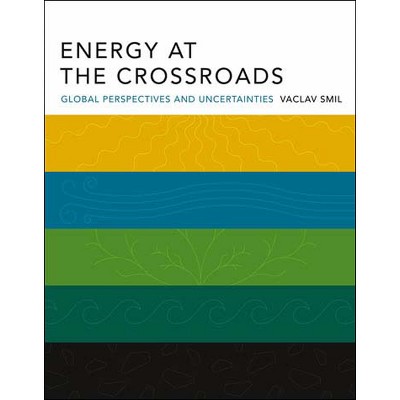Sponsored

Energy Transitions - by Vaclav Smil (Hardcover)
In Stock
Sponsored
About this item
Highlights
- This bold and controversial argument shows why energy transitions are inherently complex and prolonged affairs, and how ignoring this fact raises unrealistic expectations that the United States and other global economies can be weaned quickly from a primary dependency on fossil fuels.
- About the Author: Vaclav Smil is a distinguished professor in the Faculty of Environment at the University of Manitoba in Winnipeg, Canada.
- 192 Pages
- Technology, Power Resources
Description
About the Book
This bold and controversial argument shows why energy transitions are inherently complex and prolonged affairs, and how ignoring this fact raises unrealistic expectations that the United States and other global economies can be weaned quickly from a primary dependency on fossil fuels.
Energy transitions are fundamental processes behind the evolution of human societies: they both drive and are driven by technical, economic, and social changes. In a bold and provocative argument, Energy Transitions: History, Requirements, Prospects describes the history of modern society's dependence on fossil fuels and the prospects for the transition to a nonfossil world. Vaclav Smil, who has published more on various aspects of energy than any working scientist, makes it clear that this transition will not be accomplished easily, and that it cannot be accomplished within the timetables established by the Obama administration.
The book begins with a survey of the basic properties of modern energy systems. It then offers detailed explanations of universal patterns of energy transitions, the peculiarities of changing energy use in the world's leading economies, and the coming shifts from fossil fuels to renewable conversions. Specific cases of these transitions are analyzed for eight of the world's leading energy consumers. The author closes with perspectives on the nature and pace of the coming energy transition to renewable conversions.
- Includes case studies of energy transitions in eight nations
- Presents graphs of energy transitions on global and national scales, showing both common features and idiosyncratic patterns
- Features photographs of the containment vessel of America's first nuclear reactor and of a stationary gas turbine
- Provides a thorough bibliography
Book Synopsis
This bold and controversial argument shows why energy transitions are inherently complex and prolonged affairs, and how ignoring this fact raises unrealistic expectations that the United States and other global economies can be weaned quickly from a primary dependency on fossil fuels.
Energy transitions are fundamental processes behind the evolution of human societies: they both drive and are driven by technical, economic, and social changes. In a bold and provocative argument, Energy Transitions: History, Requirements, Prospects describes the history of modern society's dependence on fossil fuels and the prospects for the transition to a nonfossil world. Vaclav Smil, who has published more on various aspects of energy than any working scientist, makes it clear that this transition will not be accomplished easily, and that it cannot be accomplished within the timetables established by the Obama administration. The book begins with a survey of the basic properties of modern energy systems. It then offers detailed explanations of universal patterns of energy transitions, the peculiarities of changing energy use in the world's leading economies, and the coming shifts from fossil fuels to renewable conversions. Specific cases of these transitions are analyzed for eight of the world's leading energy consumers. The author closes with perspectives on the nature and pace of the coming energy transition to renewable conversions.Review Quotes
"Vaclav Smil has written another important book on energy which is quite amazing. Although there are a lot of important books about energy, as an author Smil is in a class by himself in terms of breadth and depth." --TheGatesNotes.com
"Recommended. Students and general readers, all levels." --ChoiceAbout the Author
Vaclav Smil is a distinguished professor in the Faculty of Environment at the University of Manitoba in Winnipeg, Canada.Shipping details
Return details
Frequently bought together















